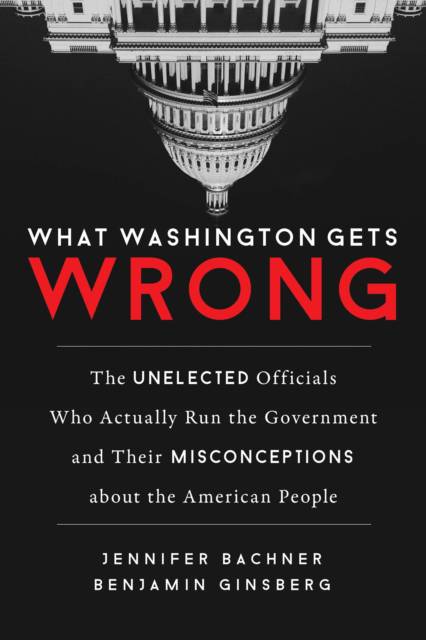
Bedankt voor het vertrouwen het afgelopen jaar! Om jou te bedanken bieden we GRATIS verzending (in België) aan op alles gedurende de hele maand januari.
- Afhalen na 1 uur in een winkel met voorraad
- In januari gratis thuislevering in België
- Ruim aanbod met 7 miljoen producten
Bedankt voor het vertrouwen het afgelopen jaar! Om jou te bedanken bieden we GRATIS verzending (in België) aan op alles gedurende de hele maand januari.
- Afhalen na 1 uur in een winkel met voorraad
- In januari gratis thuislevering in België
- Ruim aanbod met 7 miljoen producten
Zoeken
What Washington Gets Wrong
The Unelected Officials Who Actually Run the Government and Their Misconceptions about the American People
Jennifer Bachner, Benjamin Ginsberg
Hardcover | Engels
€ 27,95
+ 55 punten
Omschrijving
Each year unelected federal administrators write thousands of regulations possessing the force of law. What do these civil servants know about the American people whom they ostensibly serve? Not much, according to this enlightening and disturbing study. The authors surveyed federal agency officials, congressional and White House staffers, and employees of various policy-making organizations about their attitudes toward and knowledge of the public. They found a significant chasm between what official Washington assumes they know about average Americans and the actual opinions and attitudes of American citizens. Even in such basic areas as life circumstances (e.g., income levels, employment, racial makeup) the surveys revealed surprising inaccuracies. And when it comes to policy issues--on such crucial issues as defense, crime, social security, welfare, public education, and the environment--officials' perceptions of the public's knowledge and positions are often wide of the mark. Compounding this ignorance is a pervasive attitude of smug dismissiveness toward the citizenry and little sense of accountability. As a result, bureaucrats tend to follow their own preferences without much reference to the opinions of the public.The authors conclude with recommendations to narrow the gap between official perceptions of the American public and the actual facts. These include shorter terms, rotation from the Washington beltway to local offices, compulsory training in the responsibilities of public office, and better civic education for ordinary citizens in the realities of government and politics.
Specificaties
Betrokkenen
- Auteur(s):
- Uitgeverij:
Inhoud
- Aantal bladzijden:
- 304
- Taal:
- Engels
Eigenschappen
- Productcode (EAN):
- 9781633882492
- Verschijningsdatum:
- 4/10/2016
- Uitvoering:
- Hardcover
- Formaat:
- Genaaid
- Afmetingen:
- 152 mm x 231 mm
- Gewicht:
- 453 g

Alleen bij Standaard Boekhandel
+ 55 punten op je klantenkaart van Standaard Boekhandel
Beoordelingen
We publiceren alleen reviews die voldoen aan de voorwaarden voor reviews. Bekijk onze voorwaarden voor reviews.









